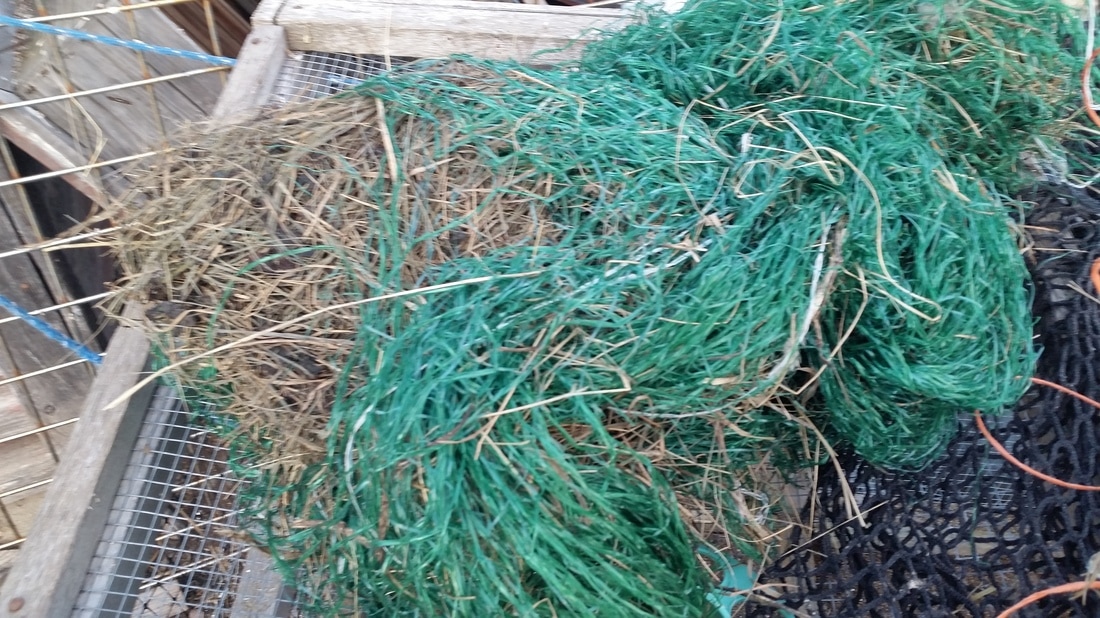Then that fall, I purchased hay that was wrapped with the netting. It was green in colour, lightweight and seemed a great solution to wrap the bales. But winter came and the net froze to the hay. Removal of the net was difficult at best and hay that was frozen to it was caught in it and discarded on the pile to be picked up in spring. The net tore and strings of it were in the hay, which was also discarded.
The problem is that the animals do not discern the net from the hay and ingest it. Ingesting a large quantity of the netting will mean certain death, for it blocks the digestive tract, obviously does not digest itself or breakdown and also can cause starvation because it occupies space in the gut and food cannot be utilized properly.
Small animals also ingest the netting string. On my farm the other day, some netting was caught in the mud and the green strings were half frozen and half in the puddle. A duck came along and ate a good portion of the net, but the rest was hanging out of her mouth. Try as she might, she could not dislodge it from the frozen ground, nor could she cough or bring up the net that was already down. I cut the net and attempted to pull out what she ate, with little success. I am hoping it was not enough to cause her to starve or to create problems with her digestion and blockages in the future.
Aside from actually getting caught in the discarded netting, like the poor little bird at the burn pit, eating that netting is the next biggest problem. So much plastic is already wreaking havoc with wildlife who eat it deliberately, attracted to bright colours and shapes that are reminiscent of food, or inadvertently eat it along with hay or other tasty bits of mud , like the duck.
A farmer was telling me he lost his best bull, who dropped dead in the field and he didn't know why, so he did his own autopsy. The gut had pounds of hay netting in it. I am sure it does not help that some of the netting is green, too, much like fresh young grass. I do attempt to pick up the netting, but when it is frozen to the ground it shreds and the pieces remain there until later, sometimes, as with the duck , too late.
Please urge farmers to discontinue the use of net wrap on their bales. Plastic twine is only slightly better, but it is easier to clean up and small animals are less likely to eat it, at least. We must be stewards for our critters. They depend on us to keep them safe. Please try to do so.


 RSS Feed
RSS Feed